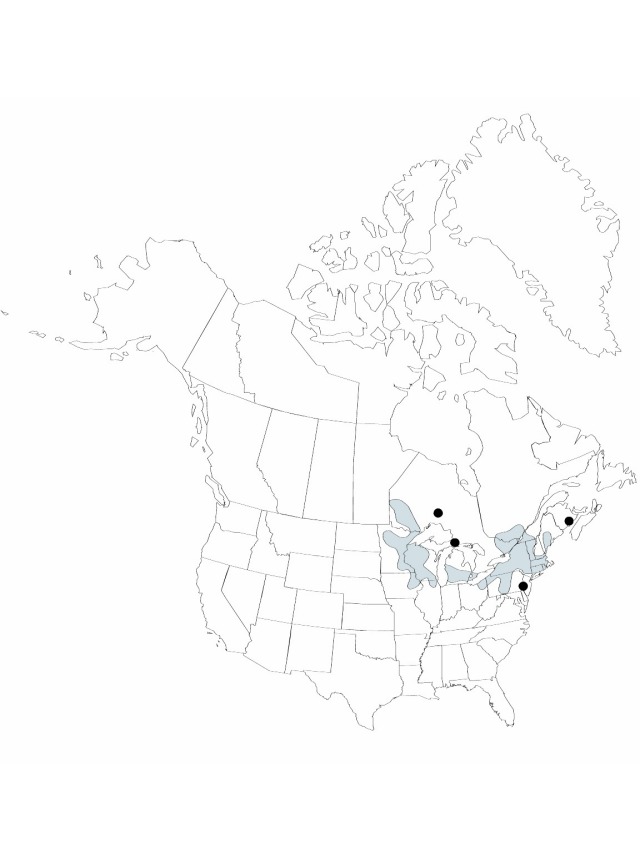Potamogeton vaseyi
in A. Gray,Manual of Botany of the Northern United States (ed. 5) 485. 1867.
Rhizomes absent. Cauline stems terete, without spots, 2–5 cm; glands absent. Turions common, axillary, 0.5–2 cm × 0.5–1.2 mm, soft; leaves ± 2-ranked; outer leaves 2–3 per side, base not corrugate, apex acute; inner leaves undifferentiated or rolled into tight, hardened structure. Leaves submersed, or both submersed and floating, ± spirally arranged. Submersed leaves sessile, delicate; stipules persistent, inconspicuous, convolute, free from blade, green to brown, not ligulate, 0.4–1.2 cm, not fibrous, not shredding at tip, apex attenuate; blade light green, linear-filiform, not arcuate, 2–8 cm × 0.1–1 mm, bases slightly tapering, without basal lobes, not clasping, margins entire, not crispate, apex not hoodlike, acute to almost bristle-tipped, lacunae present, rarely absent, 0–2 rows each side of midvein; veins 1(–3). Floating leaves: petioles continuous in color to apex, 5–25 mm; blade adaxially greenish brown, elliptic, spatulate, or obovate, 0.6–1.5 cm × 3–8 mm, base acute, apex obtuse; veins 5–9. Inflorescences unbranched, emersed; peduncles not dimorphic, terminal, ascending in flower, recurved in fruit, cylindric, 5–30 mm; spikes not dimorphic, cylindric or moniliform, 6–8 mm. Fruits sessile, green to brown, obliquely round-obovoid, compressed, abaxially keeled, not laterally keeled, 1.5–2.5 × 1.2–1.6 mm; beak erect, 0.3–0.5 mm; sides without basal tubercles; embryo with 1 full spiral. 2n = 28.
Phenology: Flowering and fruiting summer–fall.
Habitat: Quiet waters of lakes, ponds, and rivers
Elevation: 50–500 m
Distribution

N.B., Ont., Que., Conn., Ill., Ind., Iowa, Maine, Mass., Mich., Minn., N.H., N.J., N.Y., Ohio, Pa., R.I., Vt., Wis.
Discussion
All of the original material of Potamogeton lateralis Morong, including the collection designated as the lectotype, has been studied (C. B. Hellquist et al. 1988). Every specimen, was a mixed collection of P. pusillus and P. vaseyi. Based on the results of the study, P. lateralis is taxonomically nomenclaturally invalid and should be rejected.
Potamogeton vaseyi is an uncommon species that has submersed leaves very similar to P. pusillus subsp. gemmiparus. Floating leaves apparently are present only when the species is fertile, and the species often grows intermixed with that subspecies. Collections are consequently often a mixture of the two taxa. Also, sterile collections of either taxon can easily be mistaken for the other.